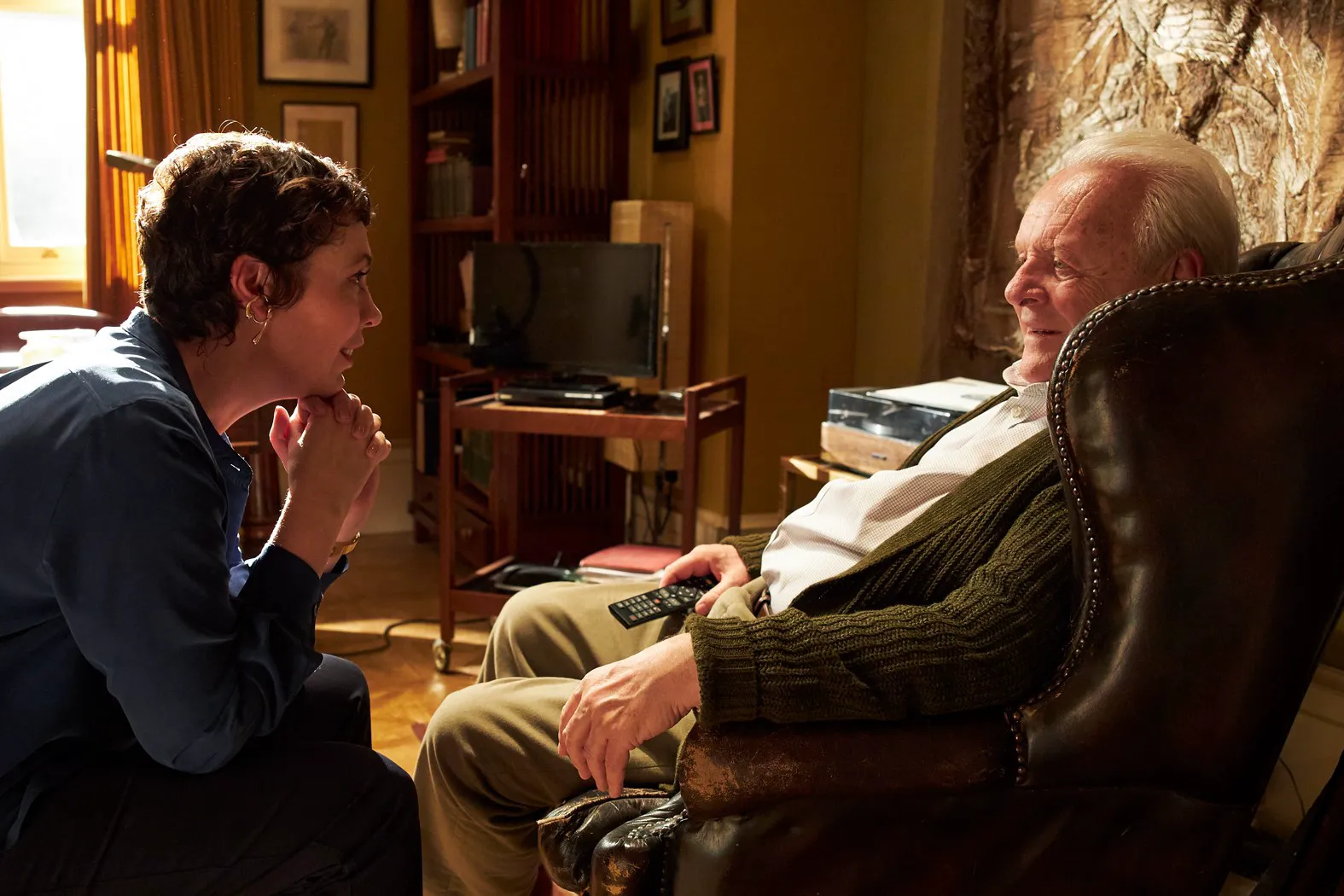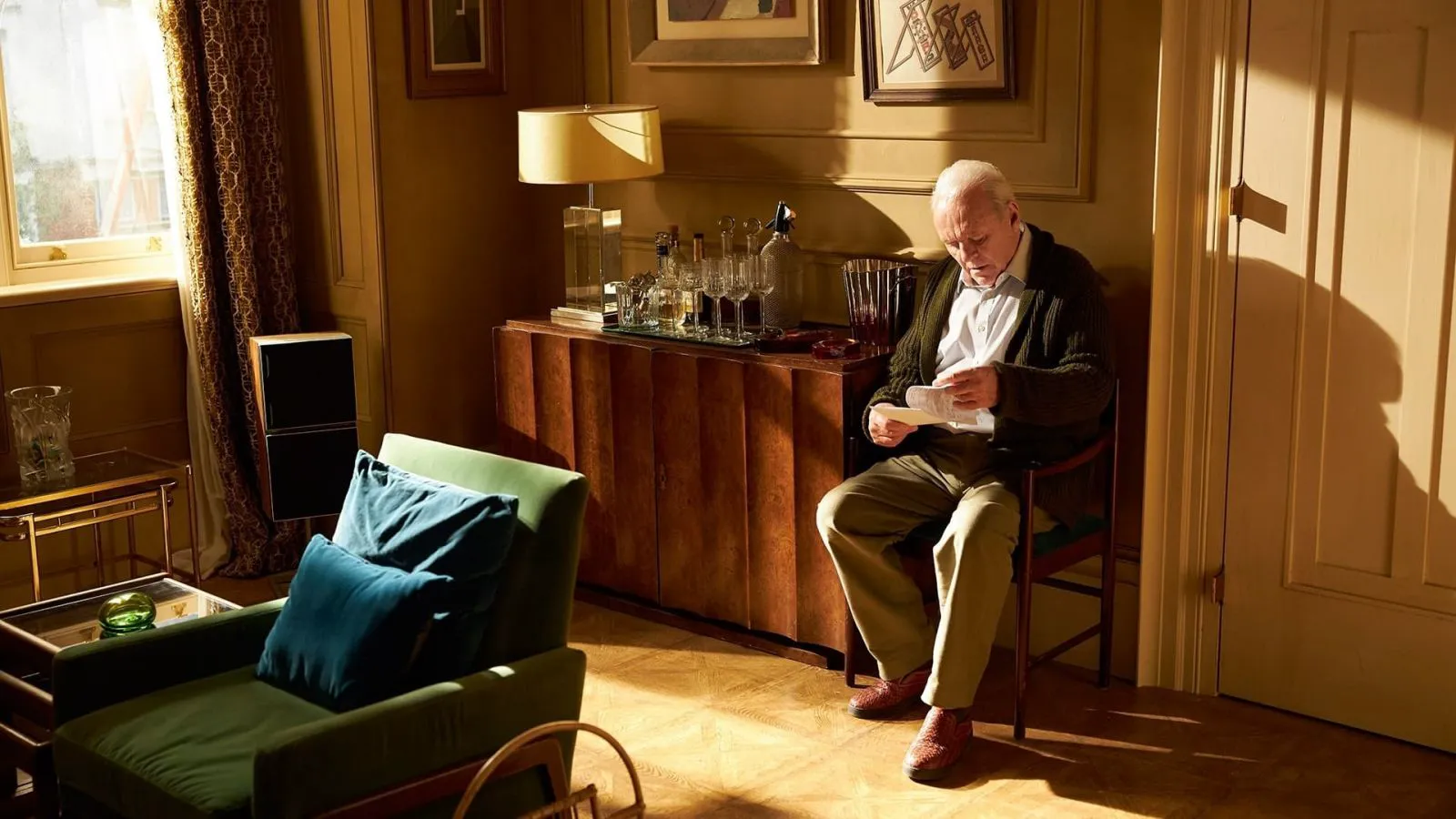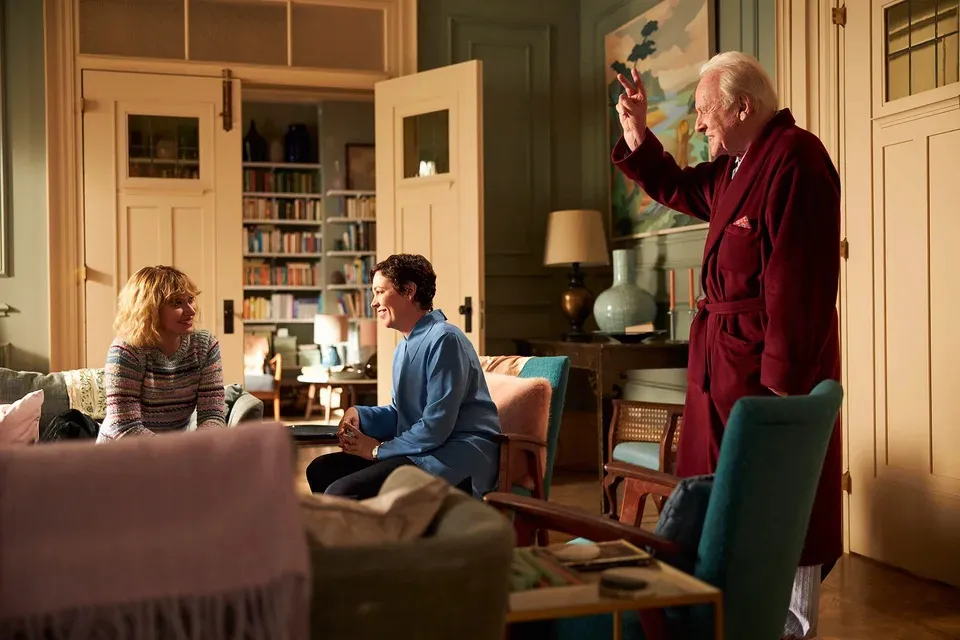Anthony (Anthony Hopkins), a man in his early 80s, lives alone in a spacious London apartment and refuses the services of caregivers hired by his daughter Anne (Olivia Colman). However, help is needed. Anthony gets lost in his own apartment and, more importantly, begins to lose touch with reality: he forgets names and important events, doesn’t understand whether he lives alone or with his daughter, and is always surprised by new people in his home.

Olivia Colman as Anne in a still from “The Father”
At first glance, “The Father” gives the impression of a classic “Oscar bait” film — a drama tailored for awards on an important topic. Dementia and Alzheimer’s disease in the hands of Hollywood bosses have long been a surefire material: you have to try hard not to evoke sympathy for the heroes who are defeated in the battle with the disease, especially if they are played by A-list stars. Julianne Moore, for example, was awarded her first Oscar for the film “Still Alice” — a safe and calculated drama that perfectly understands where to include sad music and where to demonstrate the helplessness of the heroine to move the viewer to tears. It seemed that “The Father” would join the same category, but instead, Florian Zeller presented one of the most immersive, frightening, honest, and creative films about dementia.
A Unique Perspective on Dementia

Anthony Hopkins as Anthony in a still from “The Father”
Most films on the topic are based on documenting the agonizingly slow process of fading away: the viewer watches the drama of a person who ceases to be himself and, in the eyes of loved ones, becomes a shell of his former self. The patient may get lost or wet himself, he cannot cope with basic things and becomes a burden for the family. It is, of course, difficult to watch, but the filmmakers’ obsession with the physically helpless hero looks manipulative and blunt. In this sense, “The Father” is a unique film that managed to look at the familiar plot from a different angle: the viewer is not forced to associate himself with relatives exhausted by care or simply empathize with the fading, instead, the creators try to convey the bewilderment, anger, and fear of a dementia patient who sincerely does not understand what is happening to him.
Immersive Storytelling

Anthony Hopkins as Anthony in a still from “The Father”
“The Father” is an adaptation of the play of the same name by European playwright Florian Zeller, who personally transferred it to the big screen. Often, adaptations of theatrical productions turn out to be uncinematic and devoid of a sense of freedom in the frame, but in the case of “The Father,” the chamber setting, on the contrary, helps to convey claustrophobia, as if the viewer and Hopkins’ character are locked in an ordinary but constantly changing apartment. Zeller generally uses fairly basic techniques for immersion, disorientation, and conveying Anthony’s confusion: no cinematic tricks that tear the fabric of the film, instead, echoes of an unreliable narrator, casting other actors in the same role, confusing dialogues, or a changing interior environment.

Olivia Colman as Anne in a still from “The Father”
This intelligent simplicity works: the most ordinary and accessible maneuvers turn the story into a domestic thriller, a Kafkaesque horror about a man who cannot understand who has gone mad: him or the world around him. At the same time, “The Father” does not abuse formalist techniques and uses the narrative concept to tell a story about a man who rediscovers tragic moments of the past and learns to live in a new way. The only concern during viewing was the ending of the film — when you understand the rules of the game, you begin to wonder what can put an end to the odyssey of the hero wandering through the labyrinths of memory. However, even here, the creators did not reinvent the wheel and presented a simple but only true ending, knocking the viewer out with childlike naivety.
Anthony Hopkins’ Masterful Performance
However, it is unlikely that the above techniques and ideas would have worked with the same force if it were not for Anthony Hopkins in the film. He, of course, even in “Transformers” and “Thor” played as if these were not Hollywood blockbusters, but the most important productions of the London theater, but in “The Father,” the actor, even by his own high standards, performed one of the main and most complex roles in his fruitful career. This is not just senile helplessness, but a desire to prove that he is still worth something; it is anger, resentment, and frighteningly plausible fear in his eyes. A masterfully played role, worthy of any recognition and awards.